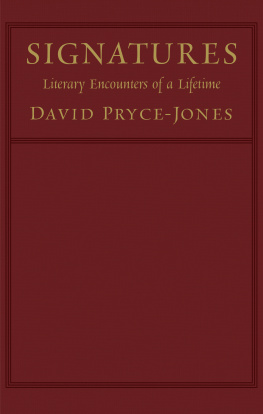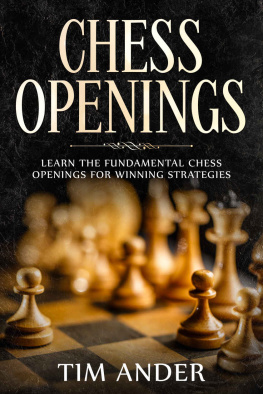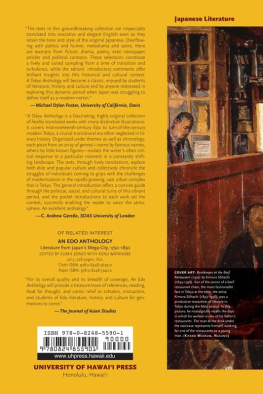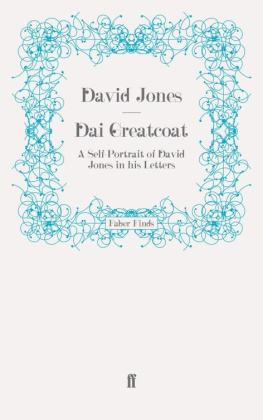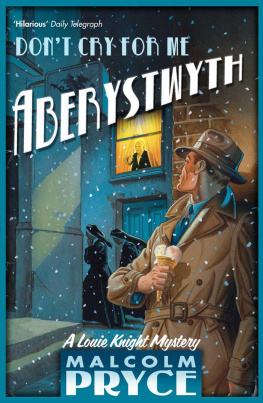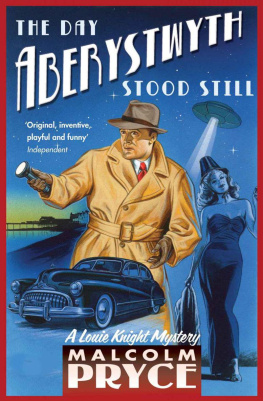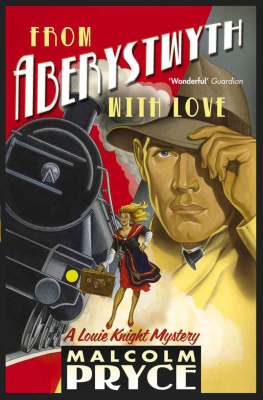David Pryce-Jones - Openings and Outings: An Anthology
Here you can read online David Pryce-Jones - Openings and Outings: An Anthology full text of the book (entire story) in english for free. Download pdf and epub, get meaning, cover and reviews about this ebook. year: 2022, publisher: Encounter Books, genre: Detective and thriller. Description of the work, (preface) as well as reviews are available. Best literature library LitArk.com created for fans of good reading and offers a wide selection of genres:
Romance novel
Science fiction
Adventure
Detective
Science
History
Home and family
Prose
Art
Politics
Computer
Non-fiction
Religion
Business
Children
Humor
Choose a favorite category and find really read worthwhile books. Enjoy immersion in the world of imagination, feel the emotions of the characters or learn something new for yourself, make an fascinating discovery.

- Book:Openings and Outings: An Anthology
- Author:
- Publisher:Encounter Books
- Genre:
- Year:2022
- Rating:5 / 5
- Favourites:Add to favourites
- Your mark:
- 100
- 1
- 2
- 3
- 4
- 5
Openings and Outings: An Anthology: summary, description and annotation
We offer to read an annotation, description, summary or preface (depends on what the author of the book "Openings and Outings: An Anthology" wrote himself). If you haven't found the necessary information about the book — write in the comments, we will try to find it.
Openings and Outings: An Anthology — read online for free the complete book (whole text) full work
Below is the text of the book, divided by pages. System saving the place of the last page read, allows you to conveniently read the book "Openings and Outings: An Anthology" online for free, without having to search again every time where you left off. Put a bookmark, and you can go to the page where you finished reading at any time.
Font size:
Interval:
Bookmark:
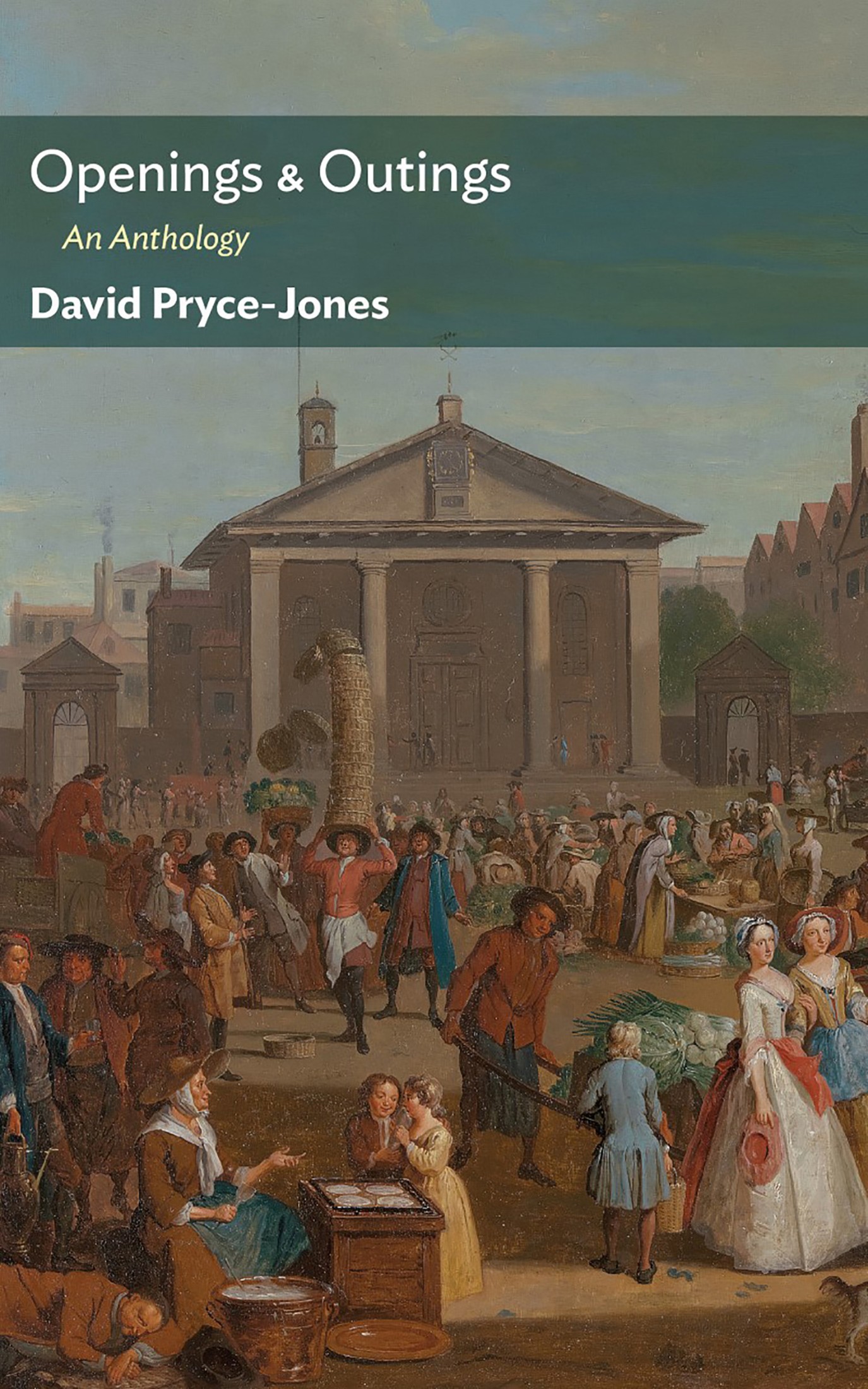
An Anthology


Copyright 2022 by David Pryce-Jones
All rights reserved. No part of this publication may be reproduced, stored in a retrieval system, or transmitted, in any form or by any means, electronic, mechanical, photocopying, recording, or otherwise, without the prior written permission of Criterion Books, 900 Broadway, Suite 602, New York, NY 10003.
First American edition published in 2022 by Criterion Books, an activity of Encounter for Culture and Education, Inc., a nonprofit, tax exempt corporation.
Encounter Books website address: www.encounterbooks.com
Manufactured in the United States and printed on acid-free paper.
The paper used in this publication meets the minimum requirements of ANSI/NISO Z39.481992 (R 1997) (Permanence of Paper).
FIRST AMERICAN EDITION
LIBRARY OF CONGRESS CATALOGING-IN-PUBLICATION
Names: Pryce-Jones, David, 1936 author.
Title: Openings & Outings: An Anthology / by David Pryce-Jones.
Other titles: Openings and Outings
Description: First American edition. | New York: Encounter Books, 2022. |
Includes bibliographical references and index. |
Identifiers: LCCN 2021052097 (print) | LCCN 2021052098 (ebook) |
ISBN 9781641772570 (paperback) | ISBN 9781641772587 (ebook)
Subjects: LCGFT: Essays.
Classification: LCC PR6066.R88 O64 2022 (print) |
LCC PR6066.R88 (ebook) | DDC 828/.91409dc23/eng/20211213
LC record available at https://lccn.loc.gov/2021052097
LC ebook record available at https://lccn.loc.gov/2021052098
For Clarissa, as always
PUBLIC OPINION is a constant tug of war with those of one mind attempting to influence rationally or irrationally those of another mind. Most of us grew up with the belief that our forebears got things right more often than they got things wrong. Some are now so sure that our forefathers were wrong in pretty well all respects that we have to atone for them and make amends. The issue, then, is what we are to think of ourselves and the history and culture that have made us who we are.
Credit for this anthology has to go to the editors who commissioned its various contents. In 1964 I was invited to spend a year at the Writers Workshop of the University of Iowa. At the end of it, I wrote a series for The Daily Telegraph about my experience of the United States. So I met John Anstey, the editor of the papers weekend color magazine. Always courteous, he was marvelously inscrutable. Reluctant to speak on the telephone, he wrote long letters. It was known that he had returned something Graham Greene had written with suggestions for improvement. If anything, he was amused when a record number of 3,000 offended readers protested about my depiction of Benidorm. He sent me without ado to cover the Six-Day War of 1967. Afterwards, I traveled widely in the Arab world. Marty Peretz, then the owner and editor of The New Republic, printed a good many articles from me about the difficulty Arabs have in deciding what purpose the past is to serve. Our forebears may have been wrong in Middle East matters, but those setting the pace today are worse.
Mel (Melvin, that is) Laski was a New Yorker who made his life in London because Encounter had its editorial offices there. Always on the lookout for contributors and topics, Mel could never be got off the telephone, and he smoked a pipe with the same determination. Every issue carried fiction and poetry. He made it seem an honor to be published by him. Militant, he stood on the frontline of the Cold War, and his opponents thought it was scandalous when the CIA was revealed as the magazines secret sponsor. The Agency ought rather to be congratulated for leaving posterity a heritage of much of the best writing of the period.
Like Encounter, Commentary stood (and still stands) at the center of American intellectual activity, and there was occasional overlap between the two monthlies. The tone is firm, the moral clear. Norman Podhoretz and his successor Neal Kozodoy have never been afraid to take a position and defend it. Neither of them was prepared to take no for an answer. Norman was the first American publisher to accept a piece of mine. Once when he was about to take an extract from a book of mine, he said, Add a few Beethoven chords, as though this were childs play. Neal gave me my head, though he once reversed the two opening sentences of something Id written and we argued about it for days.
Contributions to National Review and The New Criterion form the greater part of this anthology. There is something idiosyncratic and personal about both, old-style if you must. At the time managing editor of National Review, Jay Nord linger happened to have read me in Commentary and thought well of it. Roger Kimball turned up at my house one day in the company of Hilton Kramer, bringing a good idea, the first of many. In both publications, ideas are current coinage. National Review also has a voice of its own on the issues of the day, while in Roger Kimballs hands The New Criterion has a mission. In 1940 in the face of being overwhelmed by an irreconcilable enemy, Cyril Connolly, a highbrow critic at the best of times, launched Horizon, a monthly that was to uphold for ten crucial years the highest artistic and literary standards. What might seem a small and even marginal step proved to be a successful defense of identity and freedom. The New Criterion has taken over from wherever Horizon left off. I like to think this anthology will help keep barbarians at bay.
David Pryce-Jones December 2021
Postscript: The temptation to make some point a little sharper in the light of later experience was strong. Occasionally I have corrected the odd mistake or put a wayward comma in its place. The retaining of American and British differences of spelling and punctuation only goes to show how far superior authenticity is to consistency.
AS RUINS Go, Royaumont is as good as any. French roads also being what they are, Royaumont is about 45 minutes from Saint Denis, the cathedral in Paris where the kings of France are buried, and perhaps 20 minutes from Chantilly, where as much English as French is spoken on the racecourse. Beginning his reign in the 13th century, King Louis IX chose Royaumont as the site of one of the Cistercian abbeys he was building. Dying while on crusade in North Africa, he probably never saw what was reputed to be the most magnificent of all Cistercian abbeys in the whole country, the rival of Mont Saint-Michel or Fontevrault. Royalty notwithstanding, the Vatican singled him out for canonization.
Thousands of Cistercians took the vow at Royaumont, and one among them was Abb Prvost, whose novel Manon Lescaut was an 18th-century bestseller, later turned into operas by Massenet and Puccini. In the 1780s, the worldly abbot of the day commissioned Louis Le Masson to build him a palace, a palais abbatial, presumably paid for out of Abbey funds. An example of Palladian architecture with nothing ecclesiastical about it, the house is a huge symmetrical cube with steps up to a terrace on three sides, a main door adorned with pillars and five upper stories.
Font size:
Interval:
Bookmark:
Similar books «Openings and Outings: An Anthology»
Look at similar books to Openings and Outings: An Anthology. We have selected literature similar in name and meaning in the hope of providing readers with more options to find new, interesting, not yet read works.
Discussion, reviews of the book Openings and Outings: An Anthology and just readers' own opinions. Leave your comments, write what you think about the work, its meaning or the main characters. Specify what exactly you liked and what you didn't like, and why you think so.

